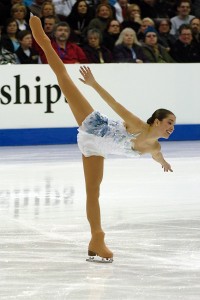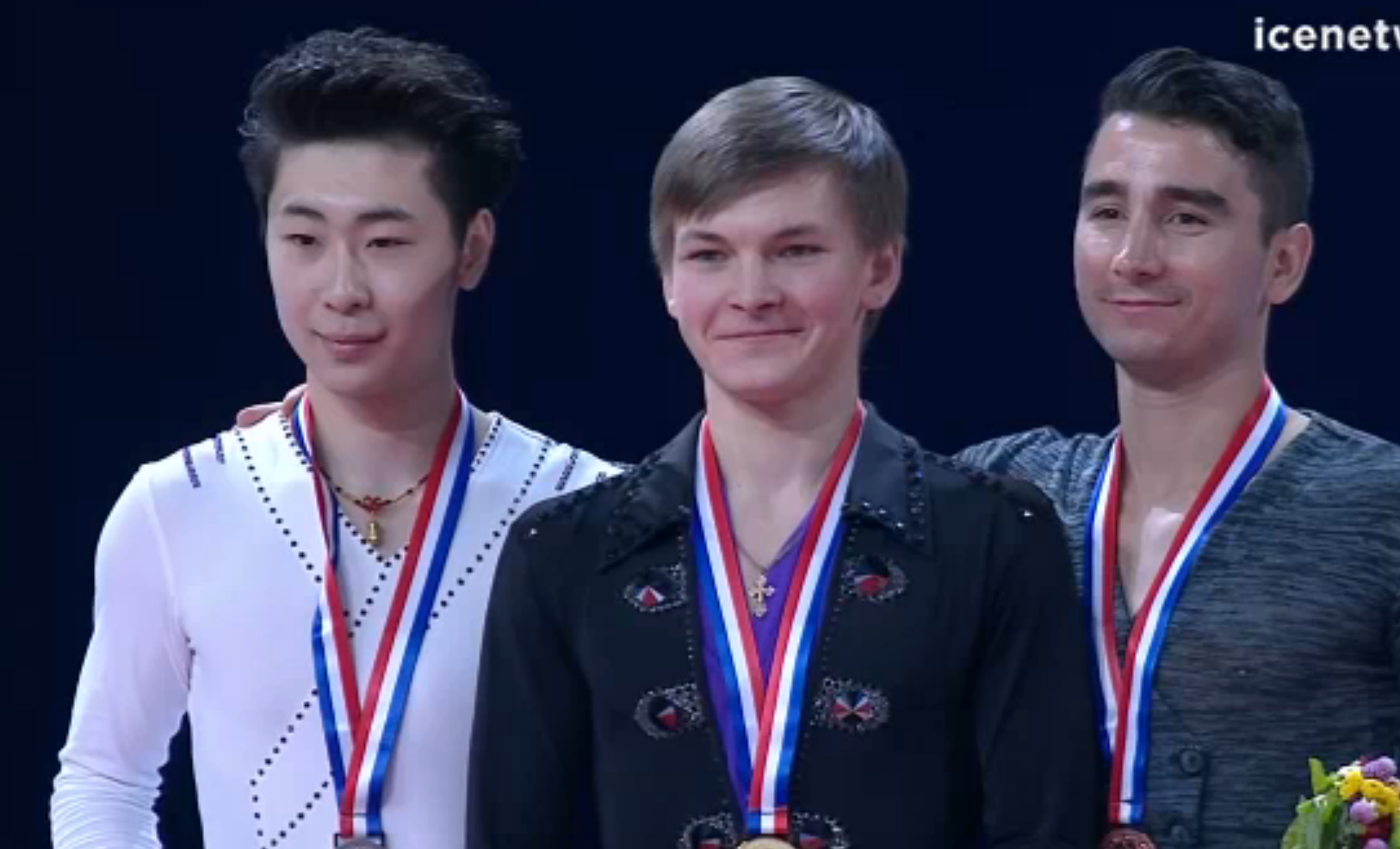 With two former World Champions competing in the ladies event at Rostelecom Cup in Moscow, not many people expected U.S. Champion Alissa Czisny to hold the second spot heading into the free skate. Not even Czisny herself.
With two former World Champions competing in the ladies event at Rostelecom Cup in Moscow, not many people expected U.S. Champion Alissa Czisny to hold the second spot heading into the free skate. Not even Czisny herself.
“I was pleasantly surprised with how I ended up,” Czisny said at the press conference following her 57.64 point performance. Her program to Zorro included a solid triple lutz-double toe combination and a triple flip. While she had a little trouble on the landing of her double axel, she made up for the lost tenths with her difficult Level 4 spins.
“My short program today was fairly good, It wasn’t my best,” she said. “I just tried to go out and stay with each jump and get my best outing out there, feel comfortable in front of the judges.”
Czisny trails 28-year-old Hungarian Julia Sebestyen (57.94), the surprising leader after Friday’s short program. Sebestyen received high marks for her jumps, including a near flawless triple Lutz-double toe, but had one point deducted because her program music went over the allotted time.
Japan’s Miki Ando (57.18), who won the 2007 World Championship and is the reining World bronze medalist, had a wonky landing on the second jump in her triple lutz-triple toe combination. She is in third place over 2009 World Junior Champion Alena Leonova (56.78) of Russia, two-time World Junior bronze medalist Ashley Wagner (55.16) of the United States and 2008 World Champion Mao Asada (51.94) of Japan.
Wagner had an edge call for an incorrect take off edge on the triple lutz in her Once Upon a Time in America. She landed a triple flip-double toe loop combination and a double axel.
“I’m really pleased,” Wagner, the U.S. pewter medalist, tweeted after the program. “I got that first program out of the way and now I’m set. It’ll be a close race tomorrow.”
The triple axel, which is supposed to be a trademark jump for Asada, proved to be her downfall for the second week in a row. She popped her opening triple axel into a double, two footed the landing and left off the second jump in the combination. Asada did not receive any credit for her solo double axel, performed later in the program, because jumps cannot be repeated in the short.
Asada scored about seven points higher in the short program at last week’s Trophee Eric Bompard. Although she finished second overall in Pairs, France, she had problems on two of the three triple axels she planned. The jump was popped into a single in the short. In the long, she landed a triple axel in combination but had her second triple axel downgraded.
The ladies free skate at Rostelecom Cup is Saturday.
Rostelecom Cup is the second event of the 2009 International Skating Union (ISU) Grand Prix of Figure Skating circuit. The series, now in its 15th season, consists of six international events in a cumulative, point-scoring format. The top six scoring athletes in each discipline move onto the Grand Prix Final, Dec. 3-6, in Tokyo, Japan, which will be combined with the ISU Junior Grand Prix of Figure Skating Final for the second consecutive season.
The six Grand Prix events are Trophee Eric Bompard, Oct. 15-18, in Paris, France; Rostelecom Cup, Oct. 22-25, in Moscow Russia; Cup of China, Oct. 29-Nov. 1, in Beijing, China; NHK Trophy, Nov. 5-8, in Nagano, Japan; Skate America, Nov. 12-15, in Lake Placid, N.Y.; and Skate Canada, Nov. 19-22, in Kitchener, Canada.
The points toward the Grand Prix Final that are awarded for each place are 15 points for first; 13 points for second; 11 points for third; nine points for fourth; seven points for fifth; five points for sixth place; four points for seventh place; and three points for eighth. In pair skating, only the top six receive points.
__________
Figure Skaters Online strives to be an accurate source of information related to the sport of figure skating. To report an error, please e-mail the news editor. Include the article date and title in your e-mail.



